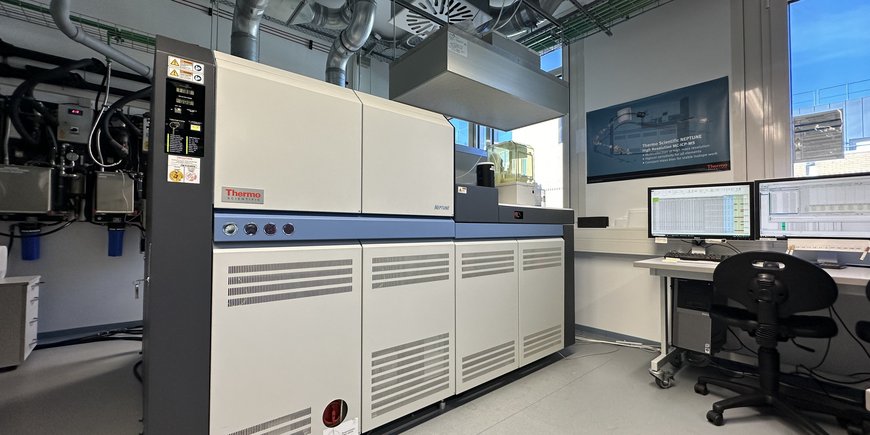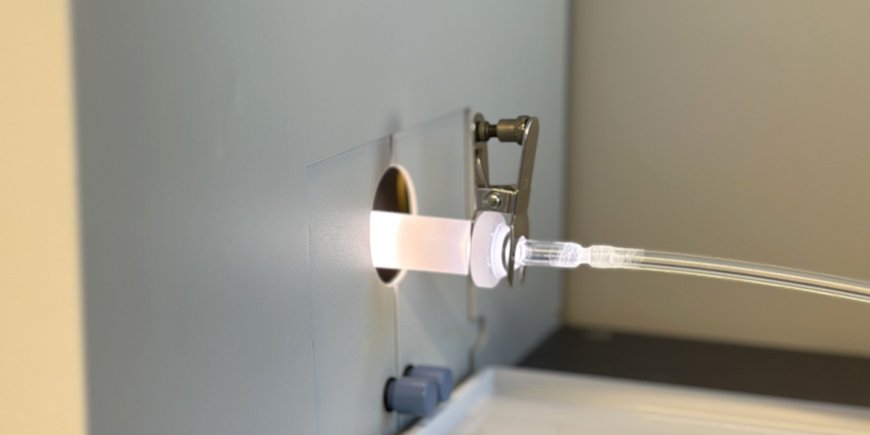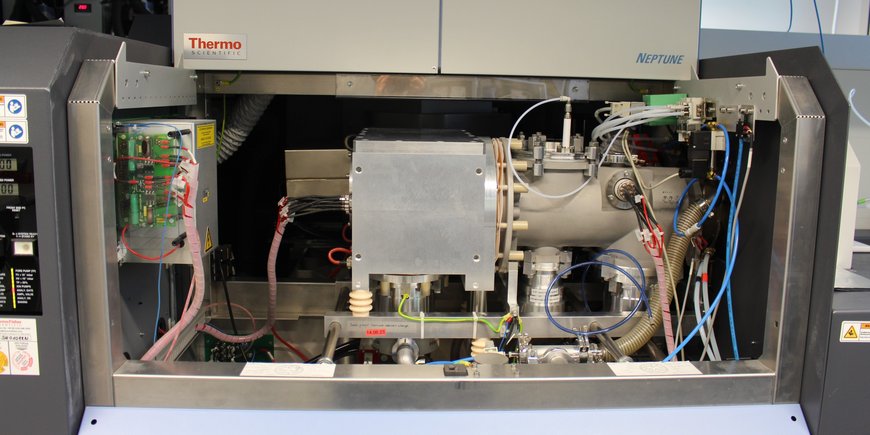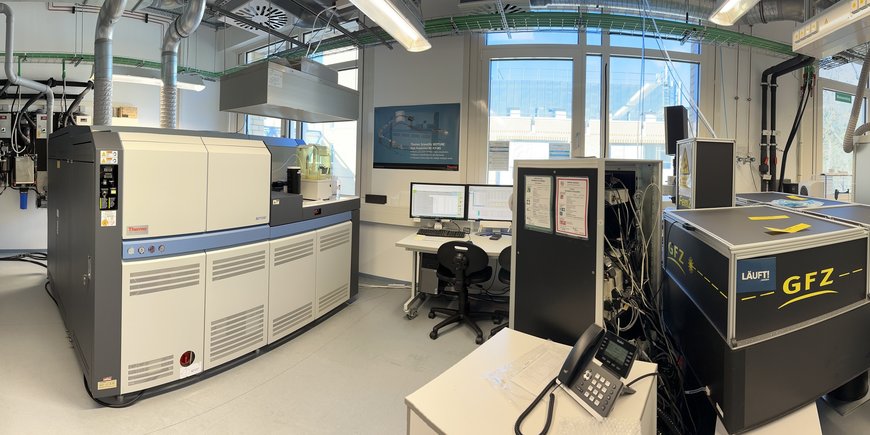The main application of the Neptune MC-ICP-MS mass spectrometer is the analysis of stable and radiogenic isotope ratios of elements purified from a wide range of geological materials, including rocks, soils, plants, waters, and more. We have established analytical routines (and corresponding purification protocols in our clean lab) for Li, B, Mg, Si, S, Fe, Ni, Zn, Sr, and Nd isotopes. Beyond just measurements, HELGES scientists have considerable experience and expertise in interpretation of these isotope ratios, and are also open to developing protocols for other elements in collaborative research ventures (get in touch!). Alternatively to solution MC-ICP-MS, a femtosecond laser ablation system can be coupled to the Neptune MC-ICP-MS for in-situ micro scale isotope ratio analysis of solid samples.
Principles of MC-ICP-MS and sample preparation
Inductively Coupled Plasma Multicollector Mass Spectrometry (MC-ICP-MS) is a versatile method for high precision isotopic analyses. A sample aerosol is introduced into the inductively coupled plasma (ICP), were all elements are atomised and ionised. The plasma consisting of ions, electrons and neutral particles and is formed from Argon gas in a high energy radio frequency field. This “hot” ion source (> 6000 °C) of the mass spectrometer allows ionisation and subsequent analyses of almost all elements in the periodic table – except gases, as the plasma is operated in ambient atmosphere. A variety of sample introduction systems is available, e.g. solution aspiration into a spraychamber or direct analysis of solids by laser ablation.
The Thermo Neptune is a high-resolution multicollector inductively-coupled plasma mass spectrometer capable of resolving isobaric interferences. Our MC-ICP-MS has a NeptunePlus upgrade, consisting of a large interface pump (Pfeiffer OnToolBooster) and a Jet-cone interface for increased sensitivity. The instrument is equipped with nine Faraday cup detectors (eight are moveable), an axial discrete dynode secondary electron multiplier (SEM) with RPQ, and two miniaturised SEMs (CDD at H4 and L4) for high abundance-sensitivity measurements.
The multicollector array comprises nine Faraday, a central SEM, and two CDD detectors (CDD: Compact Discrete Dynode Multiplier). This multiple-ion counting system allow simultaneous detection of several isotopes to achieve high precision isotope ratio measurements. For liquid sample introduction into the mass spectrometer a double Scott/Cyclon spray chamber (made of quartz glass or PFA), and an ESI Apex + Spiro membrane desolvator is available. For solid sampling a UV femtosecond laser ablation system can be coupled with to the Neptune. Our MC-ICP-MS is currently used for isotope measurements of Li, Mg, Si, Fe, and Sr (stable and radiogenic).
A metal free clean lab with filtered air laminar flow workstations is available for preparation of liquid and solid samples (e.g., acid dissolution). Here, low concentration samples can be prepared for analysis avoiding contamination. Before isotope ratio analysis by MC-ICP-MS, the element of interest is separated from other matrix elements by ion chromatography columns.




![[Translate to English:] Plasma](/fileadmin/_processed_/a/5/csm_I-05_Neptune_Plasma2_6df97a0b6b.jpeg)
![[Translate to English:] Workstation](/fileadmin/_processed_/9/f/csm_I-05_Neptune_Working_station_dccef38730.jpeg)



